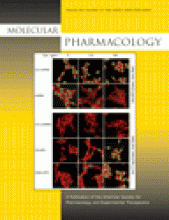Abstract
We identified dexamethasone-induced Ras protein 1 (Dexras1) as a negative regulator of protein kinase C (PKC) δ, and the consequences of this regulation have been examined for adenylyl cyclase (EC 4.6.1.1) type 2 (AC2) signaling. Dexras1 expression in human embryonic kidney 293 cells completely abolished dopamine D2 receptor-mediated potentiation of AC2 activity, which is consistent with previous reports of its ability to block receptor-mediated Gβγ signaling pathways. In addition, Dexras1 significantly reduced phorbol 12-myristate 13-acetate (PMA)-stimulated AC2 activity but did not alter Gαs-mediated cAMP accumulation. Dexras1 seemed to inhibit PMA stimulation of AC2 by interfering with PKCδ autophosphorylation. This effect was selective for the δ isoform because Dexras1 did not alter autophosphorylation of PKCα or PKCϵ. Dexras1 disruption of PKCδ autophosphorylation resulted in a significant blockade of PKC kinase activity as measured by [γ-32P]ATP incorporation using a PKC-specific substrate. Moreover, Dexras1 and PKCδ coimmunoprecipitated from whole-cell lysates. Dexras1 did not alter the membrane translocation of PKCδ; however, the ability of Dexras1 to interfere with PKCδ autophosphorylation was isoprenylation-dependent as determined using the farnesyltransferase inhibitor methyl {N-[2-phenyl-4-N [2(R)-amino-3-mecaptopropylamino] benzoyl]}-methionate (FTI-277) and a CAAX box-deficient Dexras1 (C277S) mutant. PMA-stimulated AC2 activity was also not affected by Dexras1 C277S. Taken as a whole, these data suggest that Dexras1 functionally interacts with PKCδ at the cellular membrane through an isoprenylation-dependent mechanism to negatively regulate PKCδ activity. Moreover our study suggests that Dexras1 acts to modulate the activation of AC2 in an indirect fashion by inhibiting both Gβγ- and PKC-stimulated AC2 activity. The current study provides a novel role for Dexras1 in signal transduction.
- Received September 20, 2005.
- Accepted February 17, 2006.
- The American Society for Pharmacology and Experimental Therapeutics
MolPharm articles become freely available 12 months after publication, and remain freely available for 5 years.Non-open access articles that fall outside this five year window are available only to institutional subscribers and current ASPET members, or through the article purchase feature at the bottom of the page.
|






